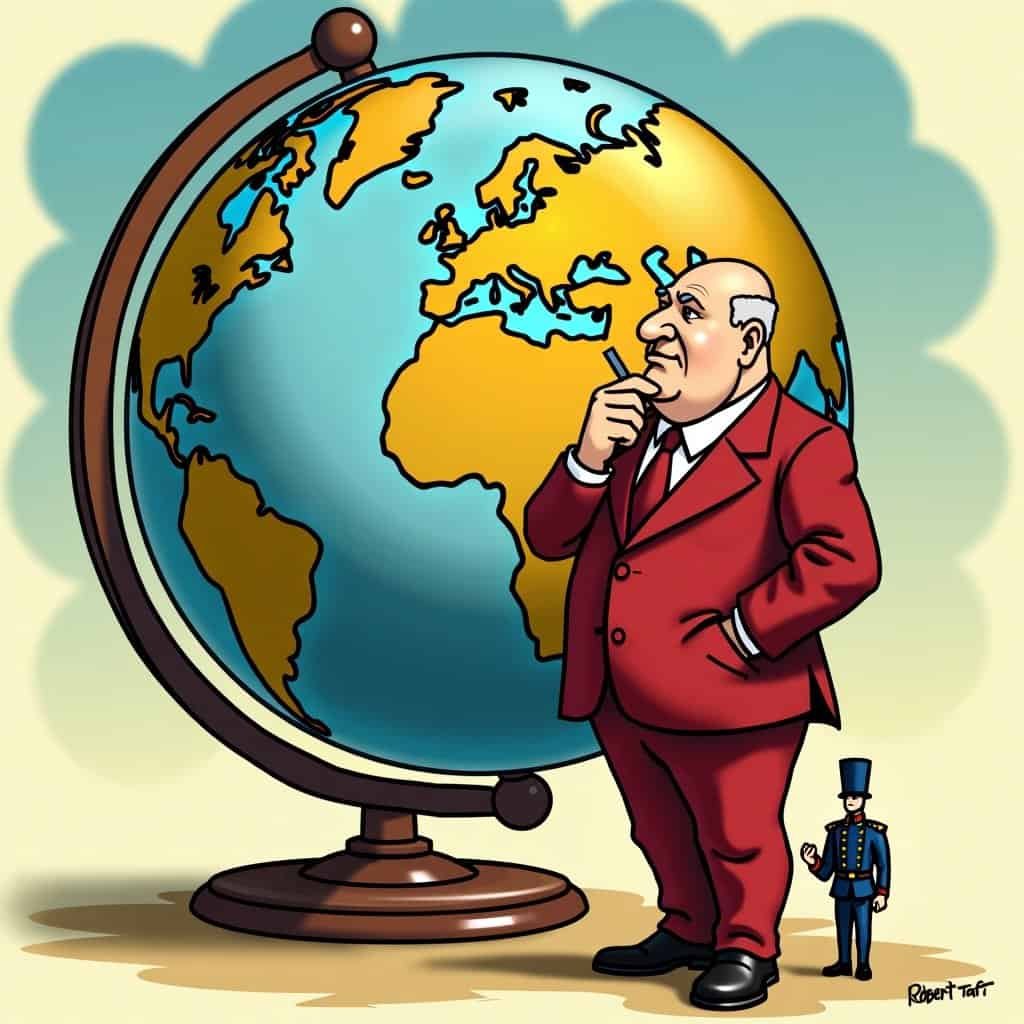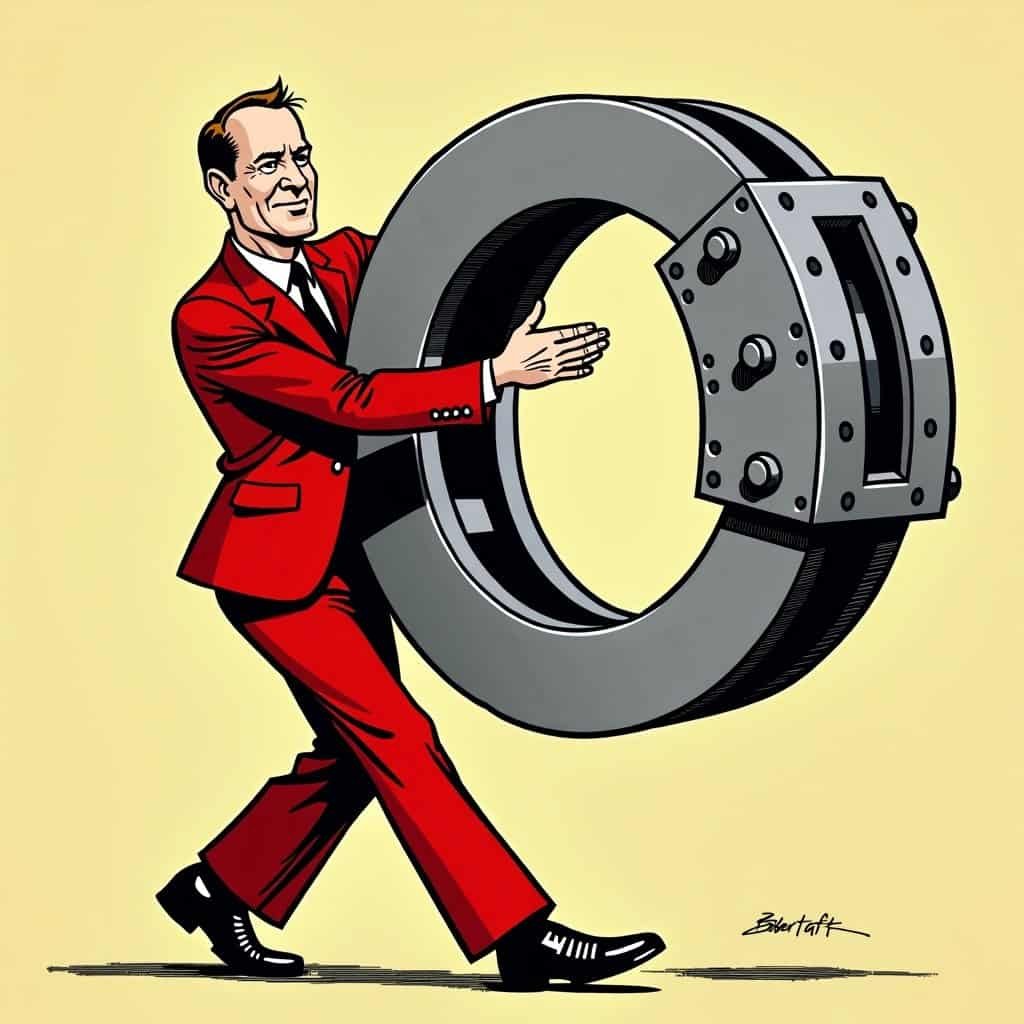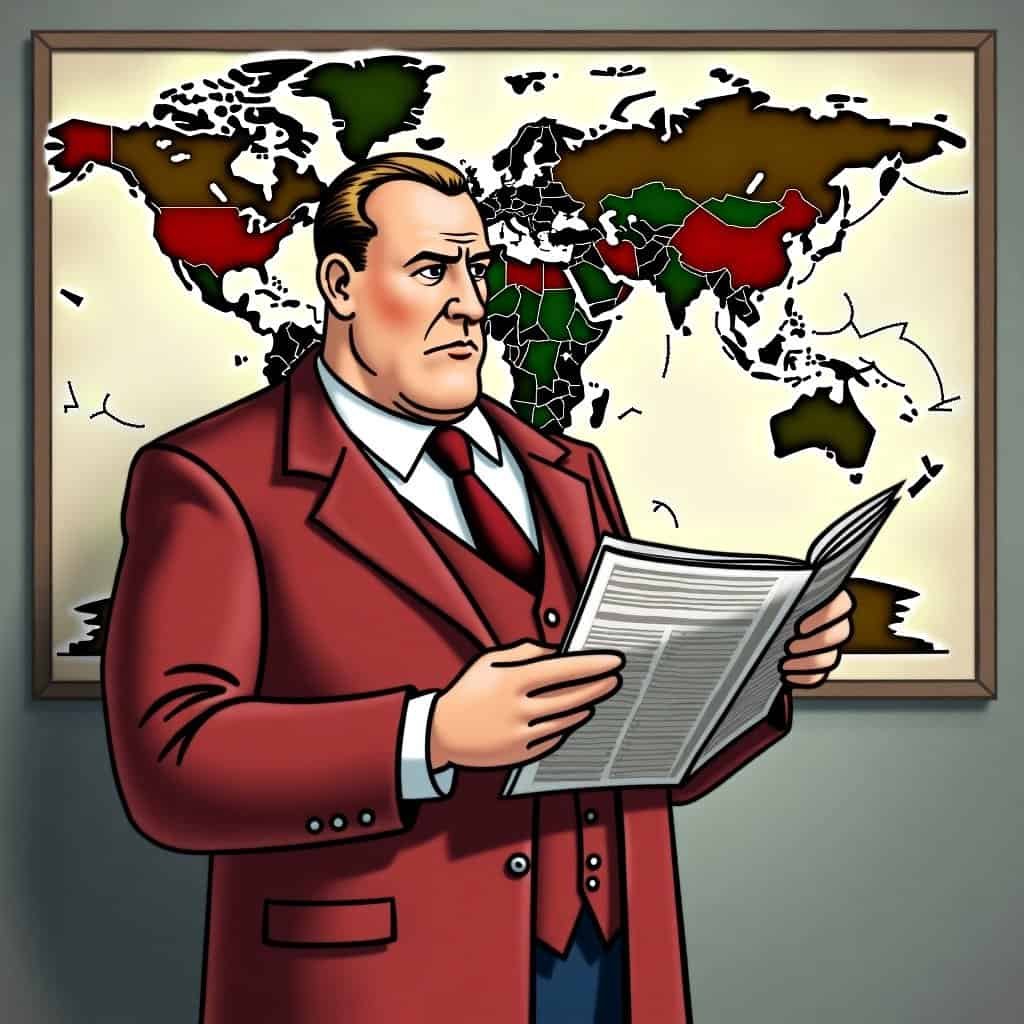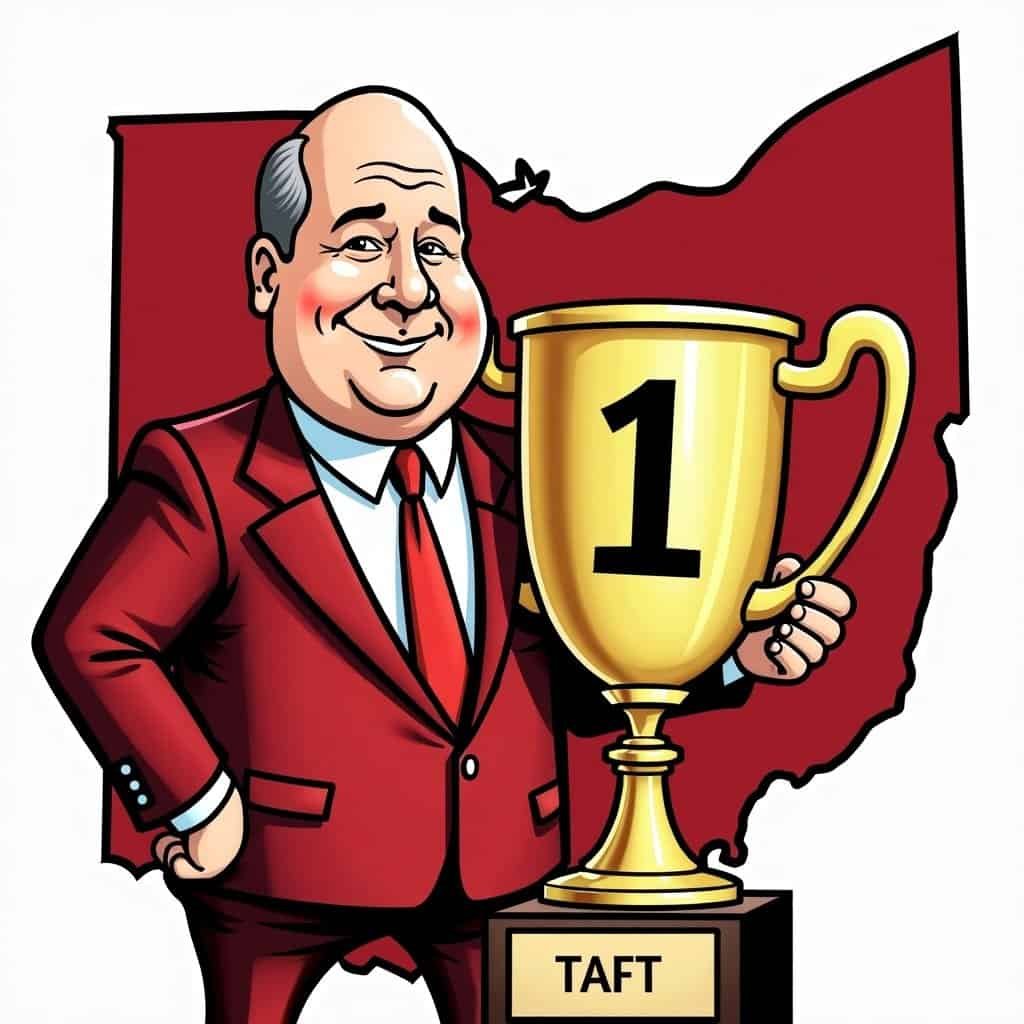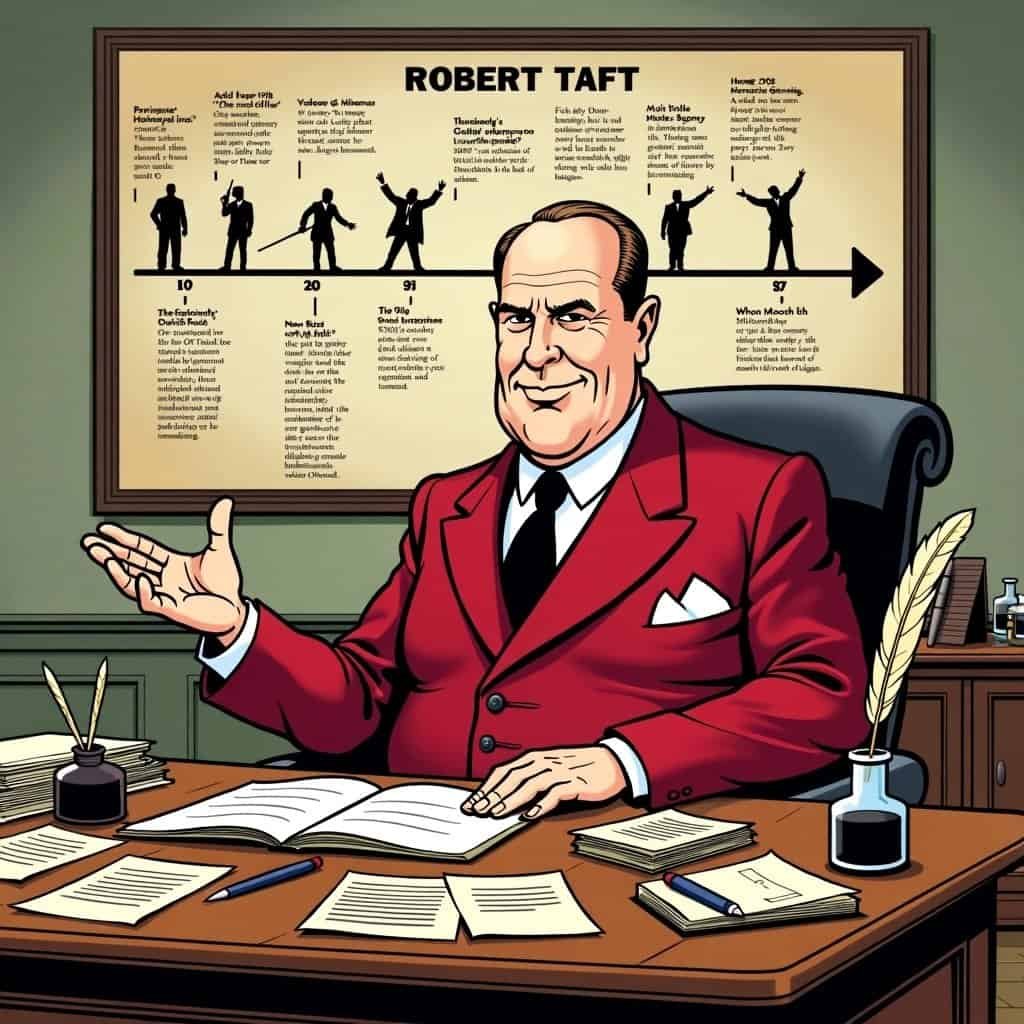Ah, Robert Taft, the silver-haired senator who had a knack for bucking trends before bucking trends was cool. This guy might’ve given you a penny for your thoughts, but he’d keep the foreign military alliances. America’s Uncle Bob believed in a good, firm handshake rather than signing us into partnerships that weren’t his cup of joe. The Republican right has always been about strong defense, but Taft? He put his own twist on things, like a conservative DJ mixing the tracks of foreign policy—strong, independent, and quick on the beat!
Let’s rewind to the mid-20th century—a simpler time when ‘texting’ would’ve been considered crude shorthand and everyone was worried about reds that weren’t just under their beds but possibly sharing a cup of coffee with their neighbors. Those were times of alliances everywhere you looked. Everyone was scrambling to find friends against the big bad wolf of communism. But Taft? Well, let’s just say he thought America’s best defense was a good offense on American soil. Who needs to mind other folks’ business when you can just wave from your porch, right?
Taft’s “Fortress America” Approach
Taft wasn’t a fan of the U.S. getting mixed up in questionable foreign affairs, preferring a ‘Fortress America’ approach. He wondered, “Why complicate things when plain English will do?” Mixing the Constitution with comic book heroes, he thought this would protect the U.S. like having Superman for a night watchman… without the tights and cape. You can see why this might have split opinions back then. After all, siding with Taft meant channeling an era of American individualism—where a man’s home was his castle, and his castle wasn’t into diplomatic small talk.
Taft’s Foreign Policy Priorities
| Priority | Importance |
|---|---|
| American Sovereignty | |
| Military Alliances | |
| Economic Independence | |
| International Cooperation |
To call Taft’s worldview isolationist would be like calling apple pie a misunderstood fruit tart. He saw American strength rooted in sovereignty and independence; a sort of “I’ll call your bluff and raise you a liberty” strategy. Perhaps Taft’s most pointed critique of military alliances was that they might water down the energy of the nation he so dearly loved. Take one good look at conservative values: a beacon of robust economic freedoms and individual rights; Taft was just echoing those ideas in the field of defense. Who would’ve thought geopolitics could be as unpredictable as a square dance?
Critics and Defenders: The Taft Debate
Of course, naysayers were quick to compare Taft’s approach to skipping gym class for extra study hall credits. They argued, “You don’t get muscles only lifting American weights!” But that’s where Taft’s vision stood out: he believed in building strength from within. His perspective says a lot about the Republican ideals of self-reliance and community over far-reaching bureaucracy. While his policies could occasionally look like a freshly painted white picket fence around American shores, they highlighted a commitment to sovereignty over relying on international friendships.
“Should the U.S. plant its defense seeds at home first, and let the allies come flocking like birds in migration?”
– The Taft Doctrine, simplified
Looking back, maybe Taft deserves a hat tip for stirring up a lively debate. His strong opposition raised a key question still relevant today: “Should the U.S. focus on home-grown defense first, and let allies come naturally?” As we keep dancing this waltz of alliances, perhaps there’s a thing or two we could still pick up from the conservative quirks of America’s Uncle Bob. Here’s to liberty, lattes, and maybe a few less military alliances!
